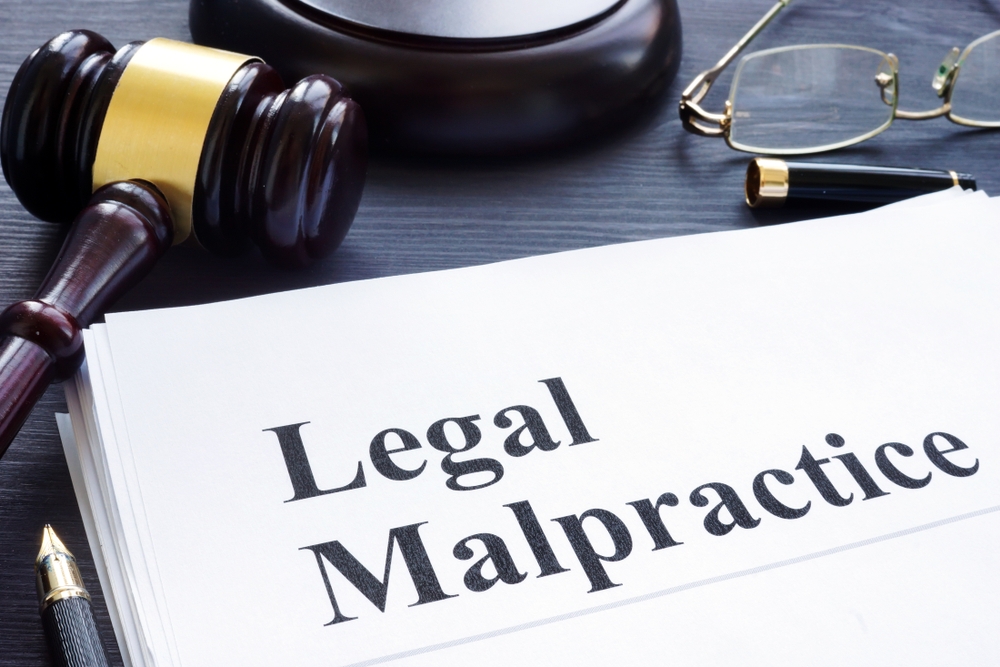
Understanding Legal Malpractice in Pennsylvania
When you hire a lawyer, you place your trust in their hands. You count on them to guide you, communicate clearly, and protect your rights. But what happens when that trust is broken—when your attorney’s error leaves you in a worse position than when you started? Perhaps your lawyer missed a critical deadline, provided poor legal advice, or even failed to appear in court.
If you’re now asking, “Was this legal malpractice?” you’re not alone. At Tarasi & Tarasi, we’ve assisted many clients across Pittsburgh and Western Pennsylvania who have faced these challenges.
What Is Legal Malpractice?
Legal malpractice occurs when an attorney fails to provide services with the level of care, competence, or diligence that a reasonably skilled lawyer would under similar circumstances, and that failure causes direct harm to the client. In Pennsylvania, a successful legal malpractice claim generally requires proof of three elements:
- An Attorney-Client Relationship is established through a formal agreement or a clear working relationship.
- Negligence on the part of the lawyer. That is, the attorney committed a significant error—such as overlooking a filing deadline, misapplying legal principles, or failing to act—where another competent attorney would have performed adequately.
- Causation of Harm. The client must show that the attorney’s negligence resulted in a concrete loss, such as a financial setback, the loss of legal rights, or missed opportunities.
A cause of action for legal malpractice sounding in negligence contains three essential elements: (1) the plaintiff's employment of the attorney or other grounds for imposition of a duty; (2) the attorney's neglect to exercise ordinary skill and knowledge; and (3) the occurrence of damage to the plaintiff proximately caused by the attorney's misfeasance." Epstein v. Saul Ewing LLP, 7 A.3d 303, 313 (Pa. Super. 2010).
Common Examples of Legal Malpractice
While every case is unique, several common scenarios can point to legal malpractice in Pennsylvania:
Missed Deadlines
In Tobias v. McCrea, 43 Pa. D. & C.3d 563 A jury found in favor of plaintiff client in her legal malpractice action against defendant attorney, who failed to timely file a personal injury action on her behalf.
Failure to Communicate
When your lawyer does not keep you informed or returns calls only sporadically, you’re left adrift during critical stages of your case. The Pennsylvania Rules of Professional Conduct require (c) R.P.C. 1.4(a) — A lawyer is required to keep a client informed about the status of the matter and to comply with reasonable requests for information promptly;(c) R.P.C. 1.4(a) A lawyer is required to explain a matter to the extent necessary to permit the client to make informed decisions regarding the representation;(d) R.P.C. 1.4(b), In re Anonymous, 1995 Pa. LEXIS 2528, *61-62
Bad Legal Advice and Procedural Errors
Recommending a course of action that is contrary to the law or committing clerical errors, like filing documents in the wrong court or misnaming a party, can derail your case. In Collas v. Garnick, 425 Pa. Super. 8, 10, the court noted that an attorney must know how documents that an attorney advises a client to execute and how they affect plaintiffs' rights.
Conflicts of Interest
If your lawyer maintains undisclosed ties with the opposing party, this conflict can undermine your case and even constitute a breach of ethical duty.
How Do You Know If You Have a Case?
If you suspect legal malpractice, reflect on these questions:
- Did your lawyer explain your legal options clearly and keep you adequately informed?
- Was there a specific moment when you felt your case was mishandled?
- Did you lose your case—or suffer a financial loss or loss of rights—because of your attorney’s failure to act appropriately?
- Would another attorney have steered your case differently, potentially achieving a better result?
When combined with the legal precedents offered by cases like those mentioned above, these questions help determine whether your attorney’s conduct fell below the established standard expected in Pennsylvania.
What to Do If You Suspect Malpractice
If you believe your attorney’s negligence has cost you dearly, here are some recommended next steps:
- Gather Documentation: Compile all relevant records, emails, and paperwork from your attorney. Such materials are crucial for assessing what went wrong and proving your case.
- Act Quickly: In Pennsylvania, legal malpractice claims are subject to a two-year statute of limitations. This period generally begins when you first became—or reasonably should have become—aware of the attorney’s error.
- Consult an Experienced Legal Malpractice Lawyer: Malpractice cases can be complex, both legally and factually. An attorney experienced in legal malpractice claims can evaluate your situation—often in light of the standards set forth in cases like Bostic, Cohen, and Sterling—and help determine if you have a viable claim.
Don’t Let One Legal Mistake Destroy Your Future
It can be overwhelming to confront the fallout from a failed legal experience. However, you don’t have to accept the damage alone. At Tarasi & Tarasi, we represent individuals throughout Pittsburgh, Allegheny County, and Western Pennsylvania who have been harmed by their former attorneys’ negligence. We’re committed to ensuring you receive the care and diligence you should have been granted from the start.
If you’re asking, “Did my lawyer’s mistake cost me everything?” then let’s review your situation and explore your options together.
Contact Tarasi & Tarasi today by calling 412-883-8904 or filling out our online contact form to schedule a confidential consultation.
Disclaimer: This blog is for informational purposes only and does not constitute legal advice. Every case is different. To understand your rights, consult a qualified legal malpractice attorney in your jurisdiction.






